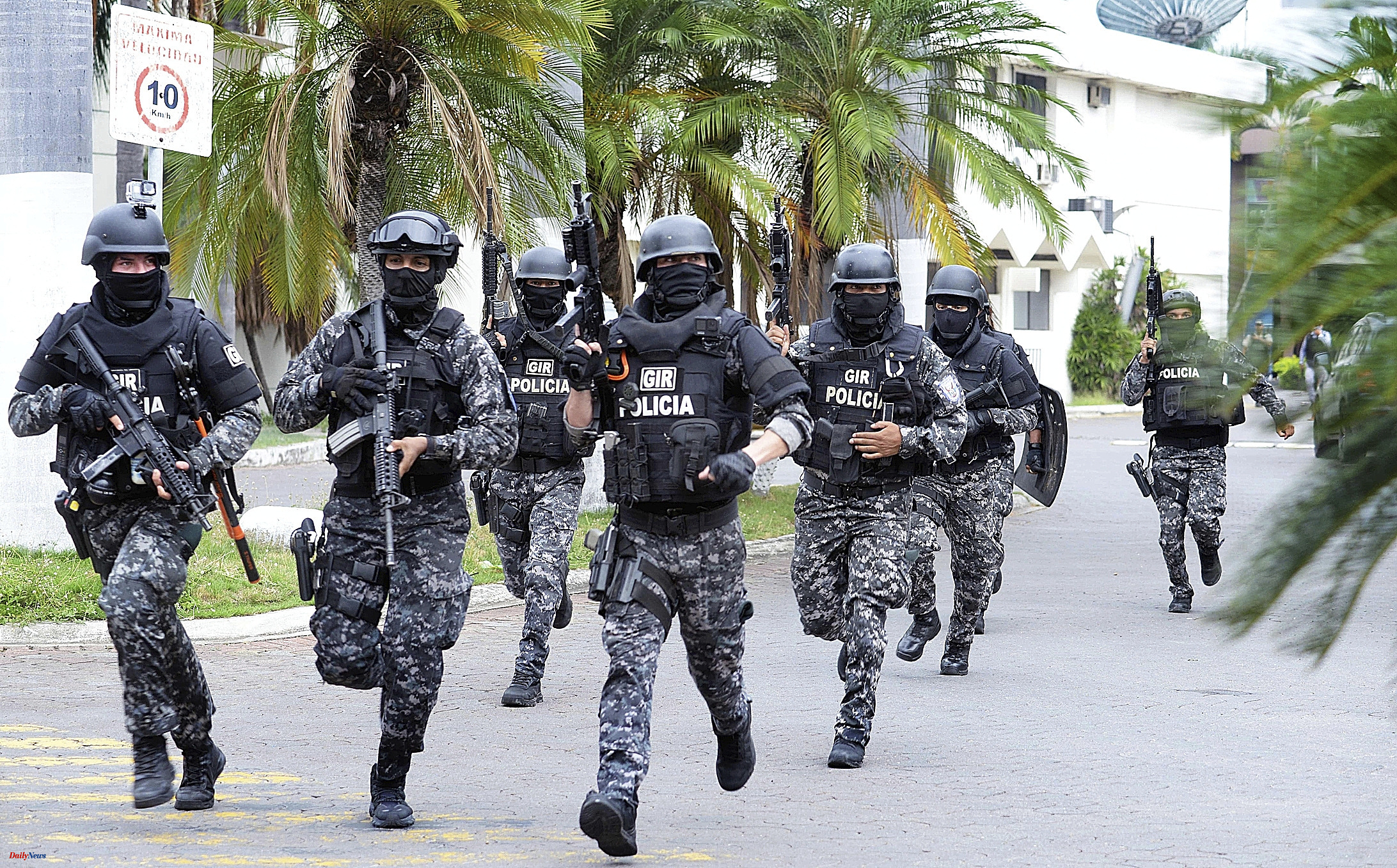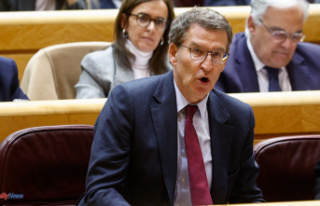As in Augusto Monterroso's story, the Ecuadorians woke up one day and the dinosaur, transformed into the drug monster, remained among them. The blatant challenge against the State of the terrorist groups, as the government defines them, has provoked the most forceful response from Daniel Noboa, who yesterday made it very clear that his heavy hand, as the people demand, also lasts until the end.
"Be brave, fight against the military," the president criticized the gangs that terrorize the country, who also record their actions, such as the execution of two police officers that occurred in Guayas, to deepen the terror in society. "The lukewarm governments are over, we are fighting narcoterrorism. We are in a state of war and we cannot give in," continued the president, knowing that his political future depends on the outcome of this battle.
Ecuador will return to the polls next year, not only to elect a president, but also some deputies who have aligned themselves firmly behind the Presidency. One of the keys to the declaration of the "internal armed conflict", which has expanded the deployment of military forces throughout the country, is in the decision advanced by Parliament: it will process pardons for members of the Security forces who are prosecuted. for "doing his job."
Two days of terror (on Tuesday an armed group attacked a news channel) were followed by a Wednesday in which both contenders measured their strength. The authorities found three charred bodies in a vehicle in Guayaquil while threats against the prison officers in the hands of the prisoners, more than 130, continued.
In the center of the capital of Guayas, renamed in this new era as Guayakill on social networks, yesterday resembled a holiday and not precisely because of the joy of its people. Something similar happened in Quito. Half-empty streets, little economic activity, no schools or universities showed that the country was still waiting and fearful. Only the police sirens broke the silence with their howls, although in other areas of the country this type of low-intensity terrorism continued with explosions and altercations.
The wounds after the terror remained open. The friends and followers of the singer-songwriter Diego Gallardollo mourned his death, caused by a stray bullet in the area adjacent to the TC Televisión channel. "He died being a hero because he risked his life for my son," revealed his sentimental partner. The bullet pierced his chest, very close to his heart.
Another man, 65 years old, died in Esmeraldas during the attack on a gas station, one more to a list of fatalities that increased yesterday to above 15 since the declaration of a state of emergency.
To the rewards already offered by the government and the US Embassy for the recapture of the escaped drug bosses, Fito (Los Choneros) and Captain Pico (Los Lobos), another twenty drug bosses have been added, among them Cocoy and Lagarto, leaders of the Tiguerones who attacked the television channel.
The escalation of events since Noboa assumed command of the country at the end of November had become a dead end for the leader of the National Democratic Alliance (ADN). Ecuador has gone in record time from being one of the calmest countries in the region and a beloved tourist paradise to leading the regional ranking of homicides, above powers such as Venezuela, Mexico and Colombia.
The massacre by mistake of an evangelical family in Guasmo Sur (Guayaquil), which ended the lives of four brothers (aged 7, 5, 3 years and six months) and their pregnant mother, alerted society: no one is except, despite the fact that some experts considered that thugs killed each other. In this case, the hitmen went to the wrong house; His enemies were in the adjacent house.
The 50 violent deaths on January 1 accelerated events. The escape of Fito, an ally of the Sinaloa cartel, forced the declaration of a state of emergency and a curfew. But the response of the 22 terrorist gangs with their storm of violence revealed the extent to which they felt unpunished.
The escape hours later of Captain Pico, accused of planning an attack against the attorney general, Diana Salazar, and the unprecedented attack on television overwhelmed the patience of Noboa, who immediately announced that Ecuador was at war as it had been almost 30 years ago. But this time not against neighboring Peru, but against the drug traffickers who emerged from nowhere and allied themselves with the Sinaloa and Jalisco Nueva Generación cartels.
The combat continues. Among the measures implemented by the government is also the deportation of foreign prisoners, around 1,500, the majority of Colombian, Venezuelan and Peruvian nationality. From Bogotá it was responded that with this action, the Ecuadorian government would cause the freedom of prisoners who do not have debts with the justice system of their country.
Noboa has also not postponed the start of construction of its two Bukele model prisons, the first in the Amazonian Pastaza, which begins today. "It's not blowing and making bottles," the Salvadoran president answered mysteriously regarding the crisis that Ecuador is going through.
"Judges and prosecutors who help these terrorists will also be considered as parts or members of that network," the president threatened. During the administration of his predecessor, the conservative Guillermo Lasso, there was constant criticism against the courts that ruled on the release of those detained by the police forces.












